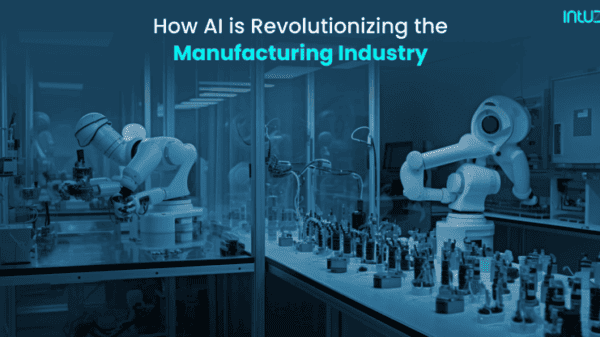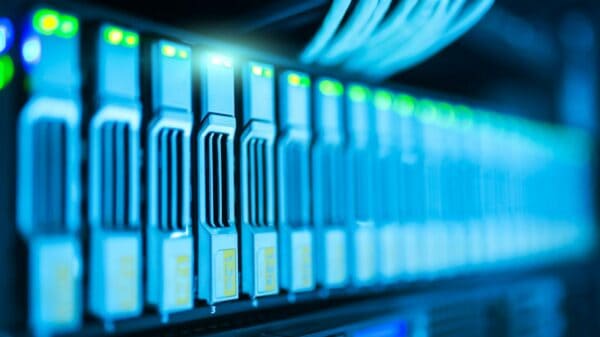Over the past two centuries, the transportation industry has undergone several evolutions, but IoT technology is poised to bring about its biggest transformation.
Due to the advancements in how we transport items and maintain logistics, data is generated from different endpoints. This data unmistakably indicates fresh prospects that the transportation industry may look forward to in the foreseeable future. With the introduction of IoT, the transportation sector is presently seeing a wider range of services, new market entrants, growing consumer experiences, and a new business model. Let’s find out the impact of IoT on transportation.
A Glimpse of Transformative Changes Facilitated by IoT
The growth of Warehouse Management Systems (WMS), startups, and the internet are scaling up the transportation sector even though it has been experiencing trouble for a long time. By combining with IoT-related technological breakthroughs, transportation-based companies are boosting their income flow.
IoT is the primary driver of the transportation sector’s game-changing value. The transportation industry contributes significantly to any country’s GDP in terms of income production, capital investment, and employment opportunities and is a crucial component of the infrastructure department.
Moreover, IoT’s initiation in commercial and governmental sectors has resulted in significant developmental changes for the transportation industry. Since more than 20 years ago, the transportation and logistics industry has used networks and sensors to gather data. There was no IT connection for these systems. But the story today is different, better, and more advanced.
Transportation companies began to rely more and more on connected devices to carry out their daily operations with the introduction of new-age technologies. Most transportation and logistics startups have adopted linked devices enabled by IoT, cloud computing, etc. As a result, they benefit from per-trip cost reductions, better freight visibility, driver behavior, vehicle health, roadmap, and much more.
At the moment, building new infrastructure or expanding an existing network attracts the majority of investments in the transportation sector. The transportation industry has used the finest technical advancements to reach bigger regions, from time and speed to risk and safety mitigation.
6 Ways in Which IoT is Transforming Transportation
-
Geolocation
Geolocation is the most important loT implementation in the industry, whether it is for logistics and delivery of commodities or public transportation.
Real-time location data sharing allows fleet managers to stay constantly informed of the whereabouts of their vehicles. With IoT included in the picture, the vehicle is more secure. Since fleet managers can readily follow a vehicle via geolocation, theft becomes more challenging.
Additionally, drivers may monitor their routes and modify them by the information supplied by fleet management. Customers can easily follow their deliveries using loT mobile applications and other alternatives. In addition to logistics, the transportation industry may employ loT for intelligent fare computations and real-time location updates.
Transportation may be significantly more productive and safer for consumers and companies when paired with geo-fencing. The businesses that integrate loT in logistics and transportation also benefit from other advantages like real-time traffic information, remote access, reduced operating costs, etc.
-
Fleet Management
The administration of several duties, such as upholding timetables, routine vehicle utilization, and service routes, is vital. To increase business earnings, fleet downtime must be decreased. Companies can improve operational efficiency and increase product visibility by utilizing IoT-based scanners, PCs, and other mobile devices.
In addition to this, drivers and technicians can be guided to effectively take preventative actions by the real-time infrastructure monitoring provided by linked IoT devices. This gives the company remote intelligence that helps it manage the fleet and cut down sudden downtime. Smart fleet management enables businesses to formalize their processes and enhance overall company performance.
Additionally, IoT connection makes it possible for a company to communicate with its employees about maintenance, repairs, and other concerns. This communication can also provide regular updates on specific weather or traffic situations.
-
Inventory Management
The logistics sector is using loT services for efficient inventory management. Large retailers cannot risk running out of inventory. It costs them a lot of money and harms their reputation. This is why effective inventory management is becoming more and more popular.
Retailers never have to worry about running out of inventory with skillful loT deployment. When a product’s supply is about to run out, the system automatically puts an order. Then, it also maintains track of the delivery with the use of loT sensors. It takes into account variables like product acclaim, product reputation, and product demand. This stops companies from placing orders for products that aren’t selling.
-
Predictive Maintenance
Predictive analytics assists small and large businesses in developing successful company growth plans, enhancing decision-making, gaining insightful business knowledge, and managing risks. IoT gives information on predictive maintenance, warning engineers of future failures.
Large volumes of data will be gathered by internet-connected devices and transmitted to the central system for additional processing. Predictive analytics and IoT solutions may be used for route and delivery planning as well as for the early detection of different problems. The results include prompt replacement of machine parts, avoidance of accidents or damages, and effective equipment maintenance.
-
Supply Chain Visibility
Supply management aims to optimize customer experience and obtain a competitive advantage via the simplification of corporate operations. The firms and people involved in producing a product, from the raw ingredients to the final goods, make up the supply chain. This includes farming, refinery, design, production, packaging, and transportation. Managing the condition of the products is one of several issues effective supply chain management can solve. Therefore, corporations and their consumers both desire to track the lifetime of a product from its inception through its delivery to the client.
IoT can offer the logistics and transportation sector a productive supply chain platform. IoT may be used in logistics and transportation to provide total visibility and speed up issue detection. To track the items, avoid order mistakes, and optimize the supply chain by making data easily accessible to all stakeholders, including the client, is mission-critical.
Long-term profits result from improved supply chain visibility. Additionally, it lessens disturbance and enables the sharing of real-time information with the stakeholders. IoT makes it possible for businesses too;
- Connect their online and offline presences,
- Allowing them to gather and use data at crucial supply chain nodes.
This successfully improves the responsiveness of the supply chain. Additionally, automatic data collecting reduces human mistakes.
-
Vehicle Compliance and Monitoring
For long-route freight transfers, consistent vehicle health monitoring and quick-action response, plus monitoring the driver’s behavior, was not possible before IoT. Poor vehicle health can endanger the safety of the driver and the cargo if it is not adequately managed.
Fleet managers can receive data on the condition of their fleet through loT sensors. Moreover, IoT sensors send data through mobile networks in little packets. This helps ensure that information is supplied from remote areas and locations with poor connections.
The fleet managers can keep up-to-date data and analysis of the vehicle’s health on the back end and issue repair alarms well in advance. IoT enables logistics and transportation businesses to operate securely. Moreover, IoT in transportation can aid companies in complying with a variety of regulations.
Radar-based sensors may also be connected to public vehicles to track passengers in real-time and alert them to impending stops and available seats. Many of these sensors may be utilized in conjunction with loT to enhance the operation of the transportation industry.
Owners of transportation companies may make sure that drivers respect traffic laws, that vehicles are used efficiently, and that cargo and people are delivered safely by using loT devices.
Conclusion
The transport and logistics sector’s Internet of Things (IoT) is steadily expanding in scope and level of execution. The industry will continue to advance along with altering trends as they occur. The lives of regular people will significantly change as a result of these industry improvements. IoT devices will become easier and more simple to use with the newest technology. With Intuz’s expertise and experience in designing and developing IoT solutions, you can access better insights and results as we build solutions for your specific requirements.
Patrick R, A techno-commercial leader heading Intuz as Director of Growth With over 12 years of experience in the field of Information Technology. His experience and expertise will entice developers and business entrepreneurs with rich content on latest technology stack. Visit for more information: https://www.intuz.com/

























































































































































































